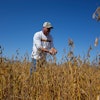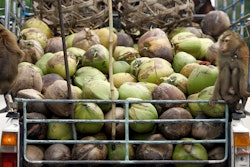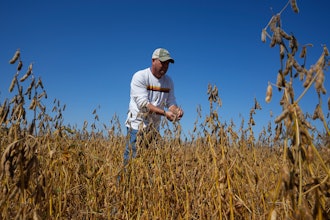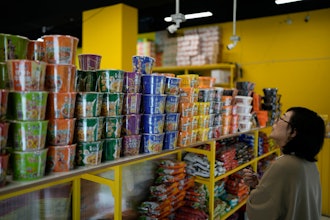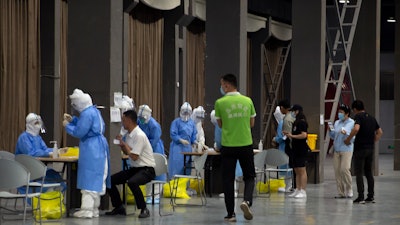
BEIJING (AP) — New coronavirus cases have dropped sharply in China, and authorities are turning their attention to concerns that the virus could spread through imported food.
Those worries have risen since a June outbreak in Beijing that was linked to the city’s largest wholesale market.
Testing has been stepped up on incoming food shipments, and on Friday customs officials said they are halting imports from three Ecuadorian shrimp producers after tests showed the virus present in recent shipments.
Authorities say the coronavirus was detected on the outer packaging of the shipments July 3. The inner packaging and the shrimp themselves tested negative. Products from the three companies received after March 12 have been ordered to be returned or destroyed.


